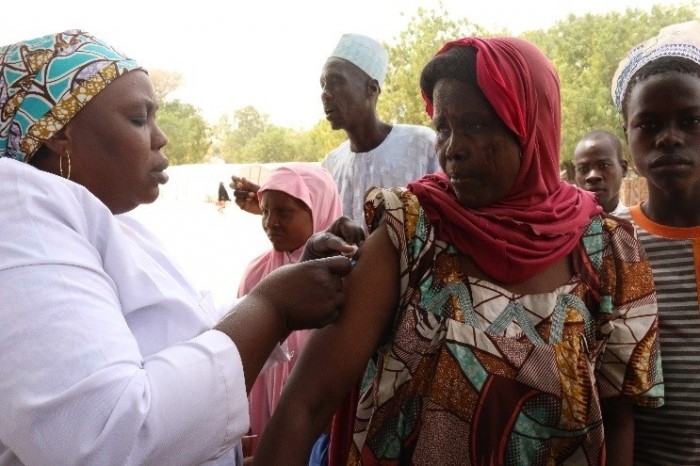26 million in Nigeria to be vaccinated against yellow fever

In collaboration with the World Health Organisation (WHO), UNICEF and Gavi the Vaccine Alliance, the government of Nigeria intends to establish high population immunity by vaccinating 26.2 million people during the second phase of its largest-ever yellow fever campaign.
From 22 November to 1 December 2018, this portion of the campaign will target adults and children in the Federal Capital Territory as well as Plateau, Sokoto, Kebbi and Niger.
Dr. Joseph Oteri, Director of Special Duties at Nigeria’s National Primary Health Care Development Agency commented:
“The vaccination will be for people within 9 months to 44 years cohort, parents are advised to avail themselves and their children to partake in the vaccination; the vaccine is free, safe and effective.”
The Federal Ministry of Health along with WHO and Gavi have trained and deployed Management Support Teams (MST). The MSTs act as supervisors and provide technical assistance during campaign season.
From January to February 2018, the first phase of the yellow fever preventative mass vaccination campaign (PMVC) occurred in parts of the Borno states, Kogi, Zamfara and Kwara.
Statistics illustrate that about 8.7 million adults and children between the ages of 9 months and 45 years of age were vaccinated. This year, approximately 39.9 million people are expected to be vaccinated against yellow fever.
Dr. Seth Berkley, CEO of Gavi, the Vaccine Alliance stated:
“Nigeria is on the front line in the global battle against yellow fever. Routine immunisation coverage remains dangerously low, as shown by the latest outbreak, which is why this campaign is so important to protect the vulnerable. While this campaign will save lives, we need to focus our efforts on the best long-term solution – improving routine immunisation coverage so every child is protected, preventing outbreaks from happening in the first place.”
Along with 50 other partners, Nigeria is participating in the Eliminate Yellow Fever Epidemics (EYE) strategy. The strategy aims to prevent international spread of the disease, protect at-risk population and contain outbreaks rapidly.
Nigeria has created a 10-year strategic elimination plan to vaccinate at least 80 percent of the target population in all states by 2026 and to reduce the incidence of yellow fever epidemics.
In Nigeria, routine yellow fever immunization coverage is extremely low. For children between 12 and 23 months, the national immunisation coverage (NICS) for yellow fever was 39 percent in 2016.
Gavi remains committed to increasing Nigeria’s low immunisation coverage, while the government plans to invest $2 billion USD into its vaccine programmes over the next decade. Gavi intends to support the country until 2028 and millions of children against some of the world’s deadliest diseases.
Join us for the AIDF Africa Summit on 26-27 February 2019 in Nairobi, Kenya to discuss the challenges and opportunities of eliminating malaria in Africa.
If you’d like to stay informed on the latest updates in aid and development, please sign up for the AIDF newsletter.
Photo Credit: WHO















